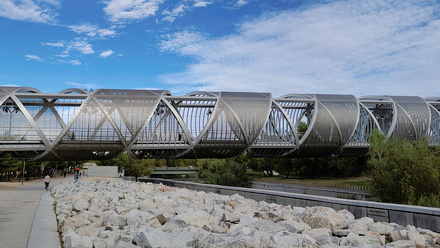Language technology, translation teaching, and resonant relationships
“I am Christophe, I am human, I do my best in life and in my job, and of late I am quite often sad, for reasons that I find hard to explain. You are human, too, and I am sure you do your best, in life in general and specifically here at the University too. I know, from what some of your fellow students have told me and my colleagues, that you, too, can be sad. Some students have told us they feel a sense of ‘existential dread.’ This is something we cannot ignore.”
This is how I opened my first lecture of the academic year 2025/26. I was faced with a room full of final-year students keen to learn more about translation but deeply uncertain about their future prospects, with regard not just to the translation profession but any career and even their personal lives.
In my view, we have two options at this inflection point in our shared history: focus on tools, technologies, skills, mastery, and appropriation, becoming hyper-specialised and ever faster, or widening the lens, recognising that none of this will lead to human happiness or the long-term happiness of our clients, and refocusing ourselves on human communicative needs that go unmet by tools and technologies.
While some of us may find this daunting, I see opportunities as well. I would have been quite reluctant, just a few short years ago, to ask my students why they are unhappy. It would have felt like prying. But their sorrows and anxieties are all too visible, and they are shared by many of my academic and my professional colleagues in translation – in other words, by many of you who read this blog post.
This is why I believe that we will benefit from connecting some of the dots that seemed unrelated: I cannot talk about language-processing technology without talking about human relationships, nor can I talk about teaching without talking about technology, or about human happiness in isolation from pedagogy, service provision or other forms of support we offer each other.
In a new publication, I am trying to do all of this, and I admit it’s something of an experiment, but it comes out of years of thinking about all of these issues and the various connections between them. In this new article on language technology, translation teaching, and resonance pedagogy, I explore ways in which sociology can inspire new forms of relationships, so infused by language and so much improved by language care that translators should be at the forefront of cultivating them, in new roles and based on new business models.
The article is coming out, in English, with Springer in a new handbook on resonance research in the social sciences, entitled Handbuch sozialwissenschaftliche Resonanzforschung, edited by Dietmar J. Wetzel, Lea Kallenbach, Jens Beljan und Jana Wienberg.
What I am hoping is that you will find it inspiring as you reorient your practice – your service offer, your ways of working, and your ways of charging for it – in an environment that is rapidly shifting but in which we remain the most qualified professionals to meet communicative needs.






